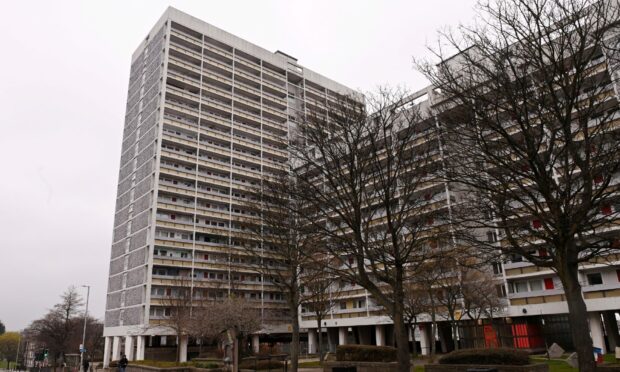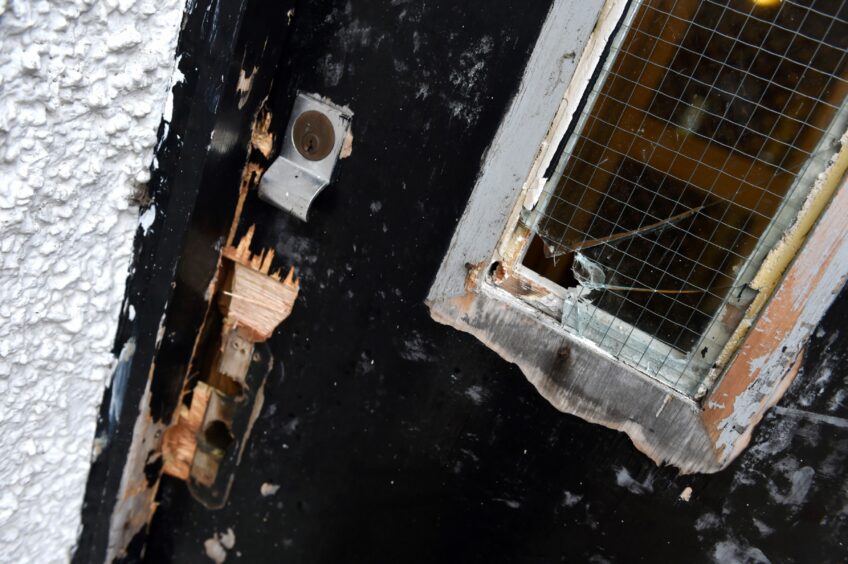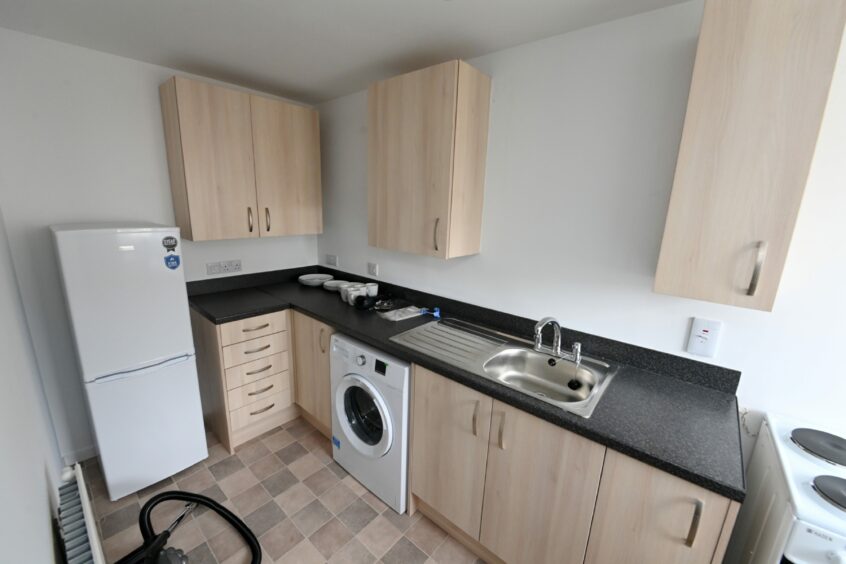The front doors of Aberdeen council homes could soon be forced open as city chiefs consider a “heavy handed” crackdown to get on top of the maintenance to-do list.
Pensioners are among the tenants commonly turning their nose up at the work, fearful of their quiet lives being disturbed.
But top brass say the drastic approach could be needed to get on top of a spiralling – and increasingly expensive – backlog.
And city tenants could even be left to pay for the repairs of workers booting their way in.
As many as seven in every 10 council flat tenants are turning down offers of new kitchens.
Success rates for fitting new bathrooms, windows, boilers and electrics are better.
But “relatively high” refusal numbers are still leaving housing staff twiddling their thumbs.
Why would you refuse to have your house done up?
People have turned down work because they are unwilling to put up with disruption.
Other reasons include that tenants have recently decorated or fitted flooring themselves, or installed their own kitchen or bathroom (with or without permission).
Elderly residents or those in ill health have also refused work, put off by the thought of the upheaval.
Some tenancy agreements already allow the council access with 24 hours’ notice for home and safety improvements.
Urgent health and safety repairs are different, with instant access allowed.
Last month we revealed council staff were making use of that power to fit new smoke alarms.
Around 1,000 still need to be installed, with 21,000 already in place.
Instead of forcing entry, in other instances tenants are asked to sign away rights to complain to the housing regulator about the state of their home.
What harm does refusal of council housing improvements really do?
Chief landlord Stephen Booth is to sound out legal experts on ways out of the log jam.
He’s losing staff time to juggling the refusals and prolonged negotiations with tenants – while watching time run out on annual budgets for home improvements too.
The jobs that do go ahead also end up costing the local authority more.
Often they try for economy of scale by doing work in several nearby properties at the same time.
And once the reluctant resident does move out, the out-of-date home stays empty for longer while it’s refurbished – costing the city rental income too.
Improved communications could reduce need for forced entry to Aberdeen council housing
Changes to the council’s housing service are hoped to improve uptake of offered upgrades.
These will include better access to information on proposed work, making it easier to speak to council staff about plans and helping tenants prepare for work.
They also plan to post videos of the extent of projects like kitchen replacements on social media.
Even with those better communication strategies in place however, chief landlord Mr Booth isn’t getting his hopes up.
He said: “While it is believed that the service improvements will in time lead to an improved take up, it is still likely that no access or refusal of works will occur.”
Fears Aberdeen City Council could look ‘heavy handed’
In those cases, he claims maintaining the status quo would decrease the quality of council accommodation and risk failures to meet modern, ever-increasing standards.
Two other options put forward would see more doors being forced to allow worker access.
The difference would be balancing tenants’ feeling of control of their homes against keeping city housing up to scratch.
However, the chief landlord fears that blanket approach across all Aberdeen council housing might lead to accusations of the local authority taking a “heavy handed approach”.
Having investigated the legal and PR ramifications of that, Mr Booth will come back to councillors with a plan at the end of the year.



Conversation